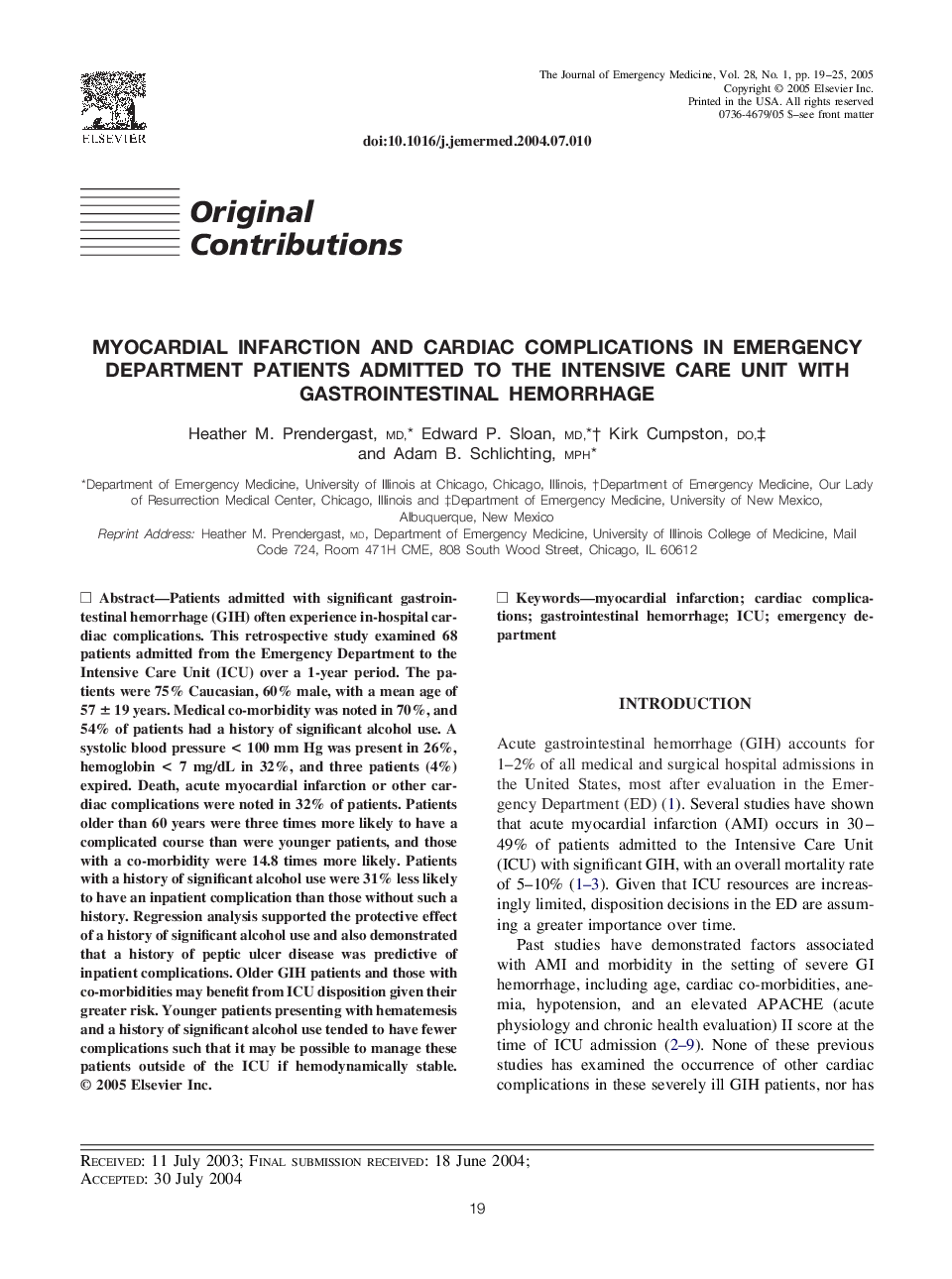| Article ID | Journal | Published Year | Pages | File Type |
|---|---|---|---|---|
| 10021854 | The Journal of Emergency Medicine | 2005 | 7 Pages |
Abstract
Patients admitted with significant gastrointestinal hemorrhage (GIH) often experience in-hospital cardiac complications. This retrospective study examined 68 patients admitted from the Emergency Department to the Intensive Care Unit (ICU) over a 1-year period. The patients were 75% Caucasian, 60% male, with a mean age of 57 ± 19 years. Medical co-morbidity was noted in 70%, and 54% of patients had a history of significant alcohol use. A systolic blood pressure < 100 mm Hg was present in 26%, hemoglobin < 7 mg/dL in 32%, and three patients (4%) expired. Death, acute myocardial infarction or other cardiac complications were noted in 32% of patients. Patients older than 60 years were three times more likely to have a complicated course than were younger patients, and those with a co-morbidity were 14.8 times more likely. Patients with a history of significant alcohol use were 31% less likely to have an inpatient complication than those without such a history. Regression analysis supported the protective effect of a history of significant alcohol use and also demonstrated that a history of peptic ulcer disease was predictive of inpatient complications. Older GIH patients and those with co-morbidities may benefit from ICU disposition given their greater risk. Younger patients presenting with hematemesis and a history of significant alcohol use tended to have fewer complications such that it may be possible to manage these patients outside of the ICU if hemodynamically stable.
Keywords
Related Topics
Health Sciences
Medicine and Dentistry
Emergency Medicine
Authors
Heather M. MD, Edward P. MD, Kirk DO, Adam B. MPH,
